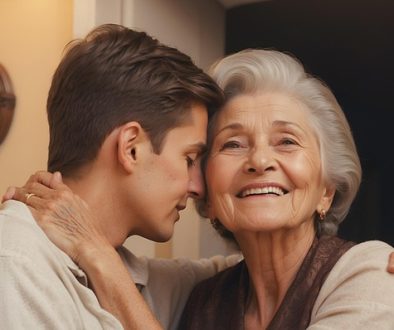7 Essential Self-Reflection Tips for Caregivers
As with anything in life, there’ll always be good and bad days as a care partner. Sometimes, everything rolls smoothly. Your mom eats all her meals. The fog clears to offer clarity for your brother living with dementia. You’re completely prepared for an afternoon of doctor visits.
Other days are a nightmare. Nothing goes right. (Believe me, I’ve been there.) Of course, none of us is perfect – especially at demanding caregiver roles that require boatloads of dedication, empathy and resilience.
Every care partner makes mistakes. Amid the daily trials, it’s easy to overlook the importance of self-reflection. In this blog, we take a look at 7 key self-reflection tips for caregivers to improve skills, better prepare and manage self-care.
Self-Reflection Makes Us Better Care Partners
Taking time to reflect on experiences provides valuable insights and helps us grow as care partners. But self-reflection itself takes some practice to assess realities and adjust routines accordingly.
Here’s how:
1. Analyze Specific Incidents
Begin by revisiting specific caregiving scenarios you’ve encountered. Think about a recent challenging situation, such as a disagreement with another member of the care-partner team or an incident when your loved one’s safety was in jeopardy.
Take a minute (and a few deep breaths) and reflect on the following:
- What happened in detail?
- Who was involved?
- What could’ve been done differently?
- How did it resolve?
Caregiving problems often seem insurmountable – until we break them down into easily digestible parts. Analyzing the incident allows us to understand it more thoroughly, revealing patterns and areas for future improvement.
2. Honor Your Emotions
Handling challenges as a care partner requires mental toughness. But having strong emotions is justified. You must honor how you feel. You feel a certain way for a reason, and processing is key to adjusting.
Reflect on how you felt during a specific incident or over the course of time. Were you frustrated because your elder loved one missed an important medication? Has it been stressful coordinating care among their various medical providers?
Sometimes it’s not the caregiving disaster itself, but uncertainty or the perceived loss of control. Recognizing emotional responses allows us to approach future issues with greater emotional control.
3. Understand Root Causes
Delve deeper into incidents or patterns to uncover the true causes:
- What factors contributed to the problem?
- What factors contributed to the outcome?
- Were there any signs you overlooked?
- What could have been done differently?
Root cause analysis helps us identify recurring issues and develop strategies to prevent them, enhancing problem-solving skills as a care partner.
4. Generate Actionable Insights
Caregiver self-reflections derive practical insights to guide future actions. Embrace these as actionable steps – a roadmap, if you will – to deliver better quality and compassionate care.
We learn which specific behaviors, practices and routines need adjustment. We naturally discover new approaches to achieving better outcomes.
For instance, we may learn how to improve communication and collaboration among both professional and family care partners. We may find missing puzzle pieces to develop more effective daily routines.
5. Apply Learnings
Now apply what we’ve learned! The true value of self-reflection lies in being better prepared to take action.
We can:
- Modify caregiving strategies based on demonstrated needs
- Experiment with new techniques for managing stress and emotions
- Adjust communication methods to nurture better teamwork
Consistently applying what we’ve learned helps us grow as care partners and improves the aging experience for everyone involved.
6. Celebrate Successes
Don’t obsess about the negative. Self-reflection as a caregiver isn’t only about addressing challenges. Just as importantly, it’s also about celebrating successes. Reflecting on positive experiences reinforces effective practices and boosts confidence, encouraging us to continue doing what works well.
Recall a time when your loved one with Alzheimer’s or another type of dementia successfully completed a bedtime routine. Think about how a successful team effort addressed an emergency scenario before it spiraled out of control.
Above all, remember moments that made you feel appreciated and motivated.
7. Make Caregiver Self-Reflection a Habit
Self-reflection is like exercise. We get stronger with each repetition.
Spend a few minutes each day reflecting on your experiences. I find it helpful to write a daily journal documenting thoughts and insights. Even jotting seemingly incoherent thoughts can provide clarity in the long run. Reflect during quiet moments, like the work commute or before bed.
Build a habit of mindfulness and intentional growth.
Using Caregiver Self-Reflection to Embrace Continual Growth
Notice I said, “continual” versus “continuous.” It’s impossible to improve as a caregiver continuously – or uninterrupted. There WILL be more mistakes. There WILL be stagnant periods and even regressions in skills and energy. But regular self-reflection is a powerful tool for adjusting and making incremental improvements over time.
This ongoing journey of self-discovery and improvement also enriches the lives of those we care for.
As a Board-certified Patient Advocate in the state of Florida, I help elders and their care-partner teams to build life-care plans guiding and protecting autonomy. If you need help, I’m always here to chat to help you and your elder loved one(s) have A LIFE WORTH LIVING.




